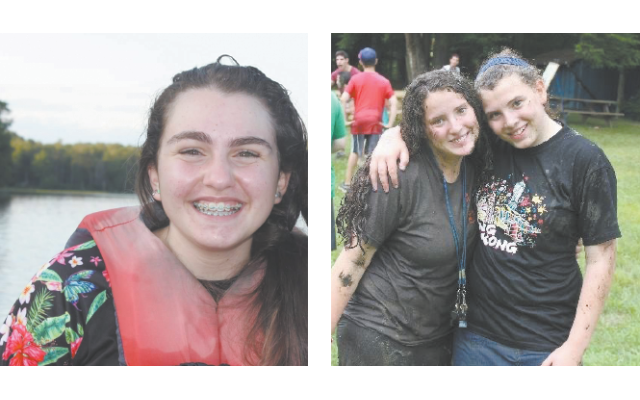Where Do Orthodox Atlantans Send Kids to Camp?
While Orthodox parents face many of the same considerations others do when picking a camp, religious requirements also weigh in their decision making.
When you decide to send your kids away to summer camp, what do you consider? Location? Cost? Friends attending? Programs such as sports, arts and crafts, academics, special needs? Timing? All relevant and important. But if you’re in an observant Jewish home, there is one other consideration to take into account – does the camp reflect how you live your life the rest of the year?
Rabbi Adam Starr of Congregation Ohr HaTorah wants to see kids in camps that provide an immersive religious environment that kids love.
Most Orthodox parents choose a camp that provides a well-rounded experience for their children. Daniel Wenger, a member of Ohr HaTorah, a modern Orthodox synagogue, is sending his eldest daughter, 11-year-old Gila, to Camp Stone in Pennsylvania.
He describes the atmosphere: “Every activity is crafted to be done with Jewish values in mind. At home, your children are exposed to many different environments — home, school, clubs, shul and more. They’re all interrelated, but not with one experiential viewpoint. But sleepaway camp can provide this immersion for one to two months, giving the child an amazing time in a fully Jewish world.”
Some “old timers” relate the idea that Jewish sleepaway camps developed because many Jews, living in New York’s Lower East Side, wanted their children to have an escape from the city’s miserably hot summer days with nothing to do.
So camps began to grow. Often associated with movements, emphasis on organizations or Zionism were expected or even welcomed. In fact, many camps today retain those ties. Some camps associated with the Conservative movement, such as Camp Ramah Darom in North Georgia, offer much that attracts the observant community. Camp Ramah is kosher, shomer Shabbat (Shabbat observant), and it offers a program full of Jewish values. But egalitarianism is a non-starter for most observant families.
Sylvan Wallenstein grew up in Queens. He spent summers in the 1950s in Camp Massad in the Poconos, Pa. Hebrew was the language spoken there, giving kids an excellent grounding in the ancient tongue, as well as an education in Zionism.
There were sports galore, including baseball, soccer, basketball, archery and swimming, arts and crafts, singing and dancing, along with Hebrew classes, theater and more. As part of their Zionistic goal, campers could go to Israel. Part of Yeshiva University, Camp Massad no longer exists.
Deborah Broyde chose Camp Stone because her older sister Rachel went there. Deborah started at age 7, and has continued until now, spending the last several summers as a counselor. “I loved it,” she exclaims. “It was amazing. I learned Jewish history. I experienced an intense life, loving Israel, practical and Zionistic, from a religious and historical perspective.” So incredible was this experience that Deborah, like her older sister, has made aliyah. Now 19, she lives in Jerusalem.
Camp Stone offers a life filled with Torah and avodah (work). Deborah likened it to living on a kibbutz where everyone participates in all aspects of life and contributes to all activities. At Camp Stone, boys and girls daven (pray) separately but do have activities together where appropriate. “I got a lot from camp,” she said. “I’m glad I went there and worked there. Now I see how much effort goes with working there.”
Her father, Rabbi Michael Broyde, an Emory Law School professor, agreed. “Both of my daughters, Deborah and Rachel, went to Camp Stone for many years. It was fundamental to their growth and development as traditional Orthodox Jews. Indeed, both of them now live in Israel and there is no doubt that this is a tribute to Camp Stone.”
Sometimes people choose camps for more specific reasons. Rachelle Freedman, whose name is familiar to anyone involved in Atlanta’s Jewish theater life, chose Camp Maor in the Poconos for her girls. Camp Maor is a performing arts camp for Jewish girls, particularly observant girls whose custom is not to sing or dance in front of men. Freedman wanted her girls, who are passionate about theater, to have the opportunity to meet other Jewish girls with similar interests.
“It’s nature and nurture,” she explained. “Kids make friends with others who share their passions. It’s important for them to meet others who live this life, to know they are not alone.” In addition to daily shirim (classes), there’s a lake and pool and varied sports. Girls choose majors and minors. At the end of the session, they give a non-musical performance, after which the men leave and the girls perform music for their mothers, in the spirit of kol isha, not performing in front of men but giving girls a place to shine. They take a trip to see a Broadway show, with a class from an actress in that show. This is always a highlight of the summer.
So while it looks like observant kids are limited, in truth the opportunities are limitless, letting children experience sports, crafts, theater, education and much more, all the while absorbing the halachic norms prized in their homes and helping them grow into strong, Jewishly knowledgeable and active adults.




comments